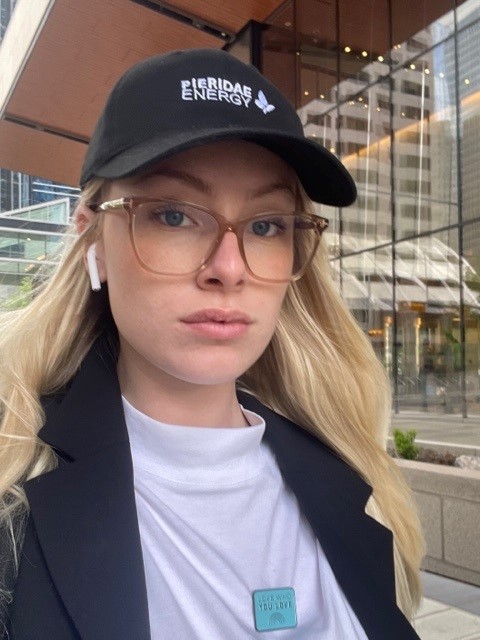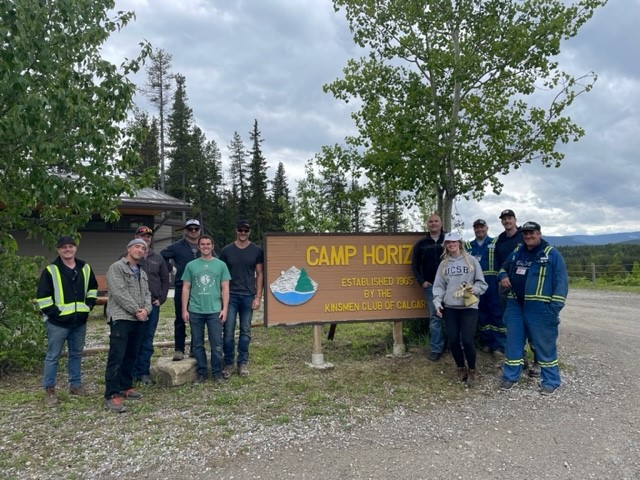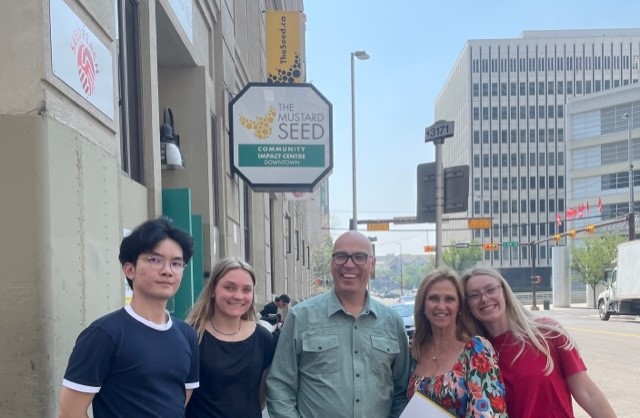
My name is Ivy, and I am the communications summer student at Pieridae. I have always been drawn to the oil and gas industry. My mom and both of my grandfathers were petroleum geologists. It is safe to say that my house has accumulated a lot of rocks over the years. As excited as I was (and still am) to be working in the oil and gas industry this summer, it has garnered some negative attention from my peers. I realized that there was a tremendous gap between what I was seeing and what people my age were saying. I wondered why there was such a discrepancy between the two and have come to understand a lack of effective communication between all parties to be the culprit.
The percentage of young people entering the oil and gas industry is dropping; it has been for years. There is so much noise that no one knows what to believe. The people in my life who are interested in oil and gas professions almost always have a parent or close family member in the industry, which is more than just a coincidence. For young people to regain passion for Canadian energy we must encourage open communication, especially to those who have had little exposure to the industry.
With that said, let’s cool the temperature and talk.
Net-zero by this, carbon neutral by that. This sounds like an end date, a death sentence. No one really knows what these buzzwords mean. Communicating ESG (Environmental, Social and Governance) material has become more tedious in recent months due to the introduction of Omnibus Bill C-59, which places liability on organizations that cannot concretely prove their claims. Many have criticized the bill, claiming it is vague and unfairly targets the oil and gas industry. Without further clarification, organizations cannot move forward with a clear understanding of environmental reporting and communications.
Effectively communicating long term environmental investments can breathe life into an industry that is often portrayed as dying. It is important to show that environmental progress within oil and gas is progress. Sometimes, the best way to make long-lasting changes is by taking baby steps towards a bigger goal. Canada is held to some of the highest standards in the world when it comes to environmental regulations. The most responsible choice is to consume energy that has been held to those standards. Many Canadian oil and gas companies (including Pieridae) are investing resources in lowering GHG emissions and placing a continued emphasis on carbon capture and sequestration. The reality is that the need for energy is not going away anytime soon, and young people should take their passion for change to industry, not away from it.
Growing up, many of us saw the adults in our lives out of work for extended periods of time – we felt the volatility of the job market firsthand. It was scary - and it was why many of my friends opted for careers that felt more stable, like nursing or teaching. Gen Z tends to think of oil and gas as the only sector to have experienced layoffs in the way that it did, circa 2015. But tech companies have been consistently laying people off since 2022. Remember when Elon Musk bought Twitter? On a smaller scale, in 2020 we all thought that careers in DEI (Diversity, Equity, and Inclusion) were going to be the future. But back in May, Florida Governor Ron Desantis signed a bill banning any public college or university from spending money on DEI programs. You cannot predict the future - few industries are immune from economic and social changes, and even fewer are safe from potential innovation that makes their position obsolete.
What does this mean?
Young people are rightfully concerned about future opportunities, job stability, and the environment. However, these fears sitting solely on the oil and gas industry are misplaced. Oil and gas may not be as scary as young people have been led to believe.
What can we do to communicate our message better?
Working at Pieridae has strengthened my belief that people in the oil and gas industry have been unfairly villainized. At Pieridae, I have felt a genuine passion for Canadian energy. Many people who work at Pieridae are scientists – they care deeply for the environment. Health and safety professionals work tirelessly to keep our team and community safe, and sites work closely with the communities they operate in, partly because they live in them. These are people who do good things for our communities; if only young people could see this.


Offering internships, mentorships, and entry level jobs will help inspire a passion for Canadian energy that has dwindled over the last decade. To draw young talent into our industry and shift their views, we should make learning exciting and accessible. It is crucial that they are presented with different perspectives so they can form informed and well-balanced opinions. We need to meet young people halfway. Focusing on frequent engagement with online communities will start to build relationships. By breaking away from traditional "corporate speak" and incorporating more relatable language, we can better captivate a younger audience. Our content should be engaging and understandable, regardless of the reader’s background or experience. Let’s encourage young people to work in the industry.

A world where young people and oil and gas find common ground is closer than we think. The disagreements demonstrate that communication between the industry and young people has broken down. But hope is not lost! We can restore these channels by engaging with young people and allowing them to experience the industry for themselves. It is important to consider the emotional reasoning when addressing the “other side” of any argument. Why do they feel the way they do and what are their values? If we continue to respond to protests with numbers, ignoring the WHY behind disapproval, it will be impossible to gain a wholistic understanding of the problem or find common ground. Anger about the environment, fear about job stability and dwindling career opportunities – people are passionate about their future. The irony is that most people in the conversation have the same goals (environmental sustainability and energy accessibility), just different ideas of how to get there. Let’s bridge the divide and start talking again!